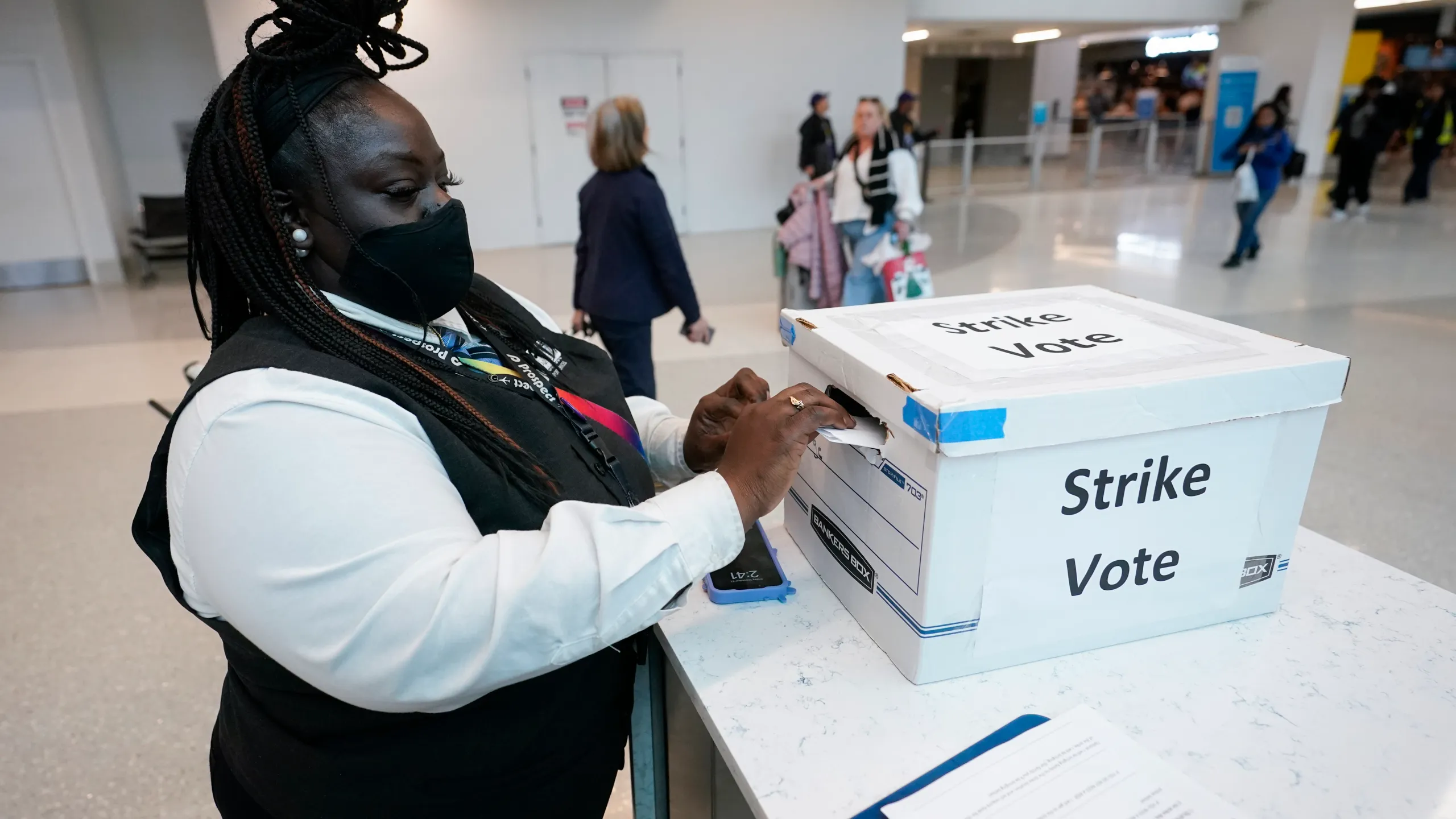As the Thanksgiving holiday approaches, marking one of the busiest travel periods of the year, a new challenge has emerged at Charlotte Douglas International Airport (CLT). Workers at the airport, including baggage handlers, security personnel, and other essential staff, have staged a strike just as millions of travelers flock to the skies for the holiday. This move has sparked widespread concern, leaving many to wonder how it will affect not only the operations at Charlotte’s airport but also the broader implications for the travel industry during one of its most crucial periods.
In this article, we will explore the causes behind the strike, its potential impact on passengers, and the broader context of labor disputes in the aviation industry. Additionally, we will look at how this strike could influence the public’s perception of airline operations during the holiday season.
The Background: Why Are Charlotte Airport Workers Striking?
The strike at Charlotte Douglas International Airport has caught many by surprise, given the timing and its potential disruption to travel plans. The strike is primarily driven by labor disputes between airport workers and their employers. The workers, who are employed by subcontractors managing operations such as security screening, baggage handling, and food services, are demanding better wages, improved working conditions, and enhanced benefits.
Many of these workers, including security officers and baggage handlers, are employed through companies contracted by airlines and airport management rather than being directly employed by the airport itself. These subcontractors, according to the workers, have been slow to address concerns about pay disparities, job security, and insufficient benefits, despite the increasingly heavy demands of their roles.
Key Issues at the Heart of the Strike
- Wages and Job Security:
A major issue cited by the striking workers is the low pay for critical roles at the airport. Many workers report that their compensation has not kept pace with the rising cost of living and inflation, especially in the context of the high demands placed on airport staff during peak travel seasons. Workers argue that their contributions, which are essential to ensuring smooth operations and passenger satisfaction, are undervalued. - Working Conditions and Safety Concerns:
Labor representatives have also highlighted concerns about working conditions at the airport. From long hours to physically demanding tasks, airport workers feel that their well-being has not been sufficiently addressed by their employers. Furthermore, the ongoing strain of handling large volumes of travelers, especially during busy periods like Thanksgiving, has exacerbated safety concerns. - Benefits and Healthcare:
Another pressing issue for the workers is the inadequate benefits packages offered by many of the subcontracting companies. Some workers, particularly those in lower-paying jobs like baggage handling, have expressed dissatisfaction with the lack of healthcare benefits and paid leave options. Many are calling for improvements in health insurance coverage and retirement benefits, which they argue are essential for workers facing the physical and emotional toll of their jobs.
The Timing: Striking at the Start of Thanksgiving Travel
The strike comes at a particularly challenging time for the aviation industry, as the Thanksgiving travel period is traditionally one of the busiest in the United States. Millions of people travel by air to reunite with family and friends, leading to an increase in flight volumes, security screenings, and overall airport congestion.
Charlotte Douglas International Airport is a major hub in the U.S., serving as a primary base for American Airlines, one of the largest carriers in the country. With over 50 million passengers passing through its terminals each year, the airport is already stretched to capacity during peak travel periods. The strike at the outset of Thanksgiving week, when travel is expected to spike even further, creates a perfect storm of logistical challenges.
The Impact on Passengers
For passengers flying through Charlotte Airport, the strike could have significant consequences. The disruption could manifest in several ways, including:
- Flight Delays and Cancellations:
A shortage of workers in critical areas such as baggage handling and security screening could lead to flight delays and cancellations. Security lines could become longer as fewer agents are available to process passengers, which in turn could lead to flight delays. Additionally, any slowdowns in baggage handling could delay flights or cause issues with checked luggage. - Increased Congestion:
Travelers are already bracing for crowded terminals and longer wait times during the Thanksgiving travel period. The strike could exacerbate this, leading to longer lines at check-in counters, baggage claim areas, and security checkpoints, further inconveniencing travelers. - General Uncertainty:
The uncertainty caused by the strike may lead to confusion and frustration for passengers. Travelers who are unaware of the ongoing labor dispute may not be prepared for potential disruptions, leading to added stress and inconvenience during an already busy time.
Airport and Airline Responses
In response to the strike, Charlotte Douglas International Airport and its partner airlines are likely taking a range of actions to minimize disruption. Some immediate measures might include:
- Hiring Temporary Workers:
To address the immediate shortfall of labor, airlines and subcontracted companies may attempt to bring in temporary workers to fill the gaps left by striking employees. This could help alleviate some of the pressure on the airport’s operations, but it remains to be seen if it will be sufficient to handle the scale of disruption expected. - Increasing Communication with Passengers:
Airlines and airport officials are likely to ramp up communication efforts to inform passengers of potential delays or disruptions. This may involve updating travelers via email, text, and social media, as well as providing additional staff at key points in the airport to direct passengers and manage their expectations. - Negotiations with Unions:
Behind the scenes, negotiations between labor unions and employers will likely intensify in the hope of reaching an agreement that could bring an end to the strike before it affects the airport’s operations too severely. These discussions will be critical, as resolving the labor dispute is essential for avoiding further disruption and ensuring a smooth travel experience for passengers.
Broader Implications for the Travel Industry
This strike at Charlotte Airport is not an isolated incident. It highlights the ongoing labor challenges faced by the aviation industry, particularly in the post-pandemic era. The aviation sector, which has been under considerable strain due to fluctuating demand, staffing shortages, and rising costs, has seen an increase in labor disputes as workers push for better compensation and working conditions.
As labor unions gain momentum across the industry, strikes like this one could become more common, putting pressure on airlines and airports to improve labor relations. If left unaddressed, these issues could lead to more widespread disruptions during busy travel periods, affecting millions of passengers worldwide.
Conclusion
The Charlotte Airport workers’ strike at the start of the Thanksgiving travel week is a wake-up call for the aviation industry, highlighting the challenges of balancing the demands of passengers with the needs and rights of workers. While the strike’s full impact remains to be seen, it underscores the importance of fair labor practices and better working conditions for airport staff, especially during peak travel seasons.
For passengers, the strike brings added uncertainty during an already stressful time, but it also serves as a reminder of the delicate balance required to maintain the efficiency and security of air travel. As the aviation industry faces ongoing labor disputes, finding a way to meet the needs of both workers and travelers will be critical to ensuring that air travel remains a smooth and efficient experience in the future.



